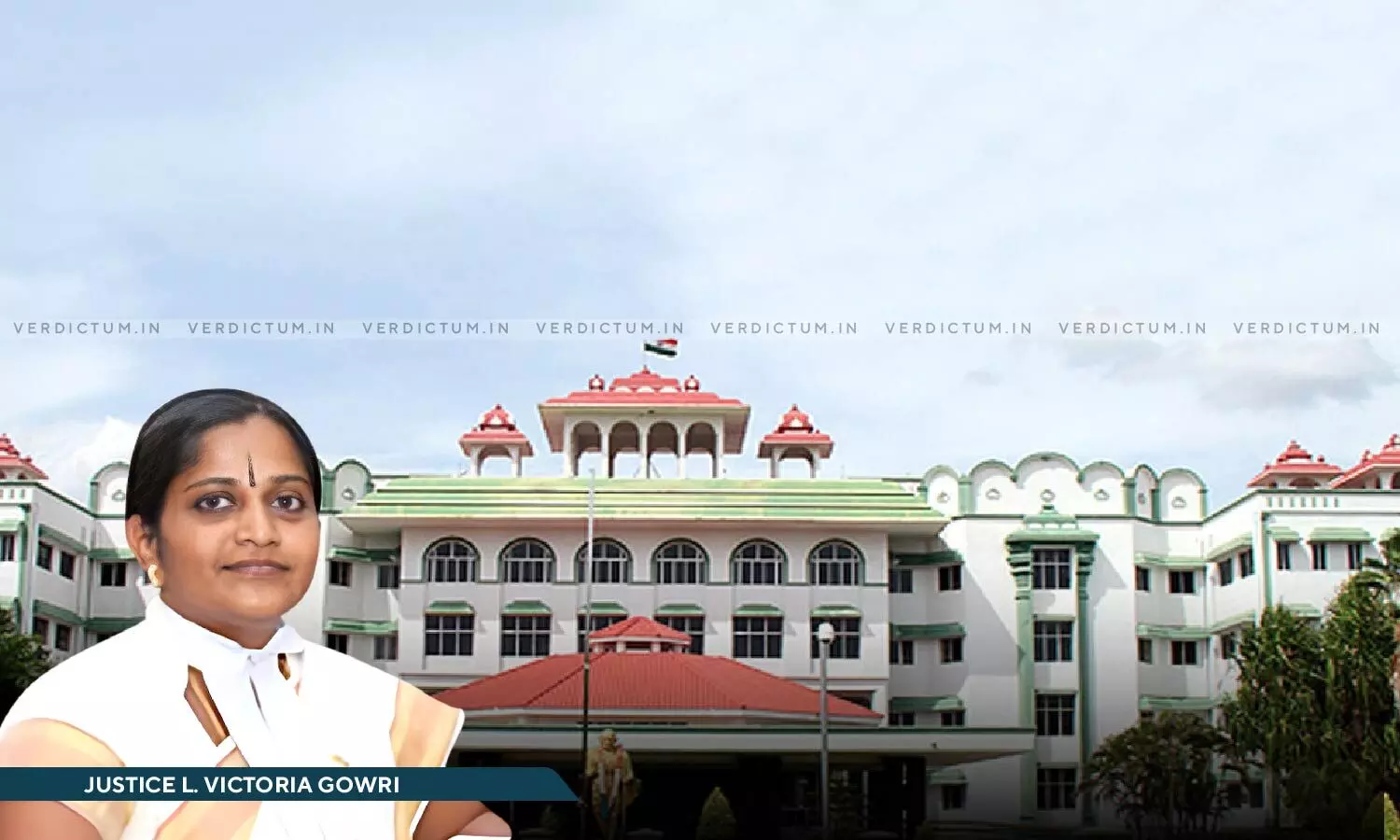
Family Pension Policy Excluding Benefit To Destitute Deserted Daughters Discriminative: Madras High Court
 |
|The Madras High Court held that the family pension policy of excluding the benefit of family pension to deserted daughters, who would fall under the category of destitutes, is absolutely arbitrary and discriminative.
While considering a petition by a daughter seeking direction to grant family pension arising out of the State Government civil service of her deceased father, the Madras High Court observed that the Government Order denying family pension to such deserted daughter has served as a severe blow on her life and livelihood subjecting her to abject poverty and dismay, and having no one to take care.
A Single Judge Bench of Justice L. Victoria Gowri observed that “the objective sought to be achieved is to extend the benefit of family pension to the destitute daughters of deceased pensioners who are beyond the age of 25 years with effect from 28.11.2011. When the object sought to be achieved is to extend the benefit of family pension to destitute daughters, the classification of daughters into unmarried daughters/widowed daughters/divorced daughters thereby excluding the benefit of family pension to deserted daughters, who would fall under the category of destitutes is arbitrary and discriminative”,
“The right of livelihood is an integral facet of right to live. The word 'law' which figures in Article 21 of Constitution should be just, fair and reasonable. Hence, G.O.Ms.No.325 Finance (Pension) Department dated 28.11.2011 to be just fair and reasonable should be given a liberal interpretation”, added the Bench.
Advocate H. Mohammed Imran appeared for the Petitioner, whereas Advocate S. Mahalakshmi appeared for the Respondent.
As per the brief facts of the case, the petitioner's father (late. Adaikalasamy) worked as PG Assistant till his superannuation in 1993. Till his date of death in 2019, he was sanctioned with civil pension for his service as BT Assistant. After his demise, his wife late. Mary was sanctioned with family pension and she was receiving the same till her death in 2020. After the demise of mother, the petitioner being the deserted daughter applied for the family pension, which was rejected on the ground that as per G.O.Ms.No.325 dated Nov 28, 2011 only unmarried/divorced/widowed daughters are eligible to receive family pension. The petitioner since being a deserted daughter, approached the High Court.
After considering the submission, the Bench observed that 'Desertion' is a ground for divorce under Section 13(1)(b) of Hindu Marriage Act, 1955, and the word 'desertion' means abandonment or withdrawal from one's attendance from a co-habitation that exists.
The Bench also observed that desertion is complete only when the factum 'deserendi' that is the factum of separation and the animus deserendi that is the intention to desert co-exist.
The Bench found from a perusal of the existing G.O.Ms.No.325 Finance (Pension) Department dated Nov 28, 2011 that the same failed to cover “deserted women”, and though the various social security schemes of the State almost covered grandmothers, mothers, daughters, the young and middle-aged women are left in lurch.
“This is a typical case where the petitioner being a deserted wife of a Srilankan husband, who has been taken care by her pensionary father and thereafter, who was living under the shades of her mother who continued to receive the family pension who is left in lurch at the age of 53 on the demise of her mother on the refusal of the competent Authority to disburse family pension to her on the ground that the deserted daughter is not covered in G.O.Ms.No.325 dated 28.11.2011”, added the Bench.
Emphasizing that the respective State and Central Governments are instruments of people which have the bounden duty to secure all citizens with life and livelihood, the Bench explained that the most significant of all the duties of a State is to secure and protect our “women”, especially women disengaged by their respective families, i.e. deserted women with or without children.
The Bench pointed that the doctrine of equality guaranteed by Article 14 and Article 15(1)(2)(3) and 16(2) guarantees equal protection and non-discrimination to the women, and Article 15(3) clearly lay down that the equality principle shall not prevent the State from making special provisions for women.
Accordingly, finding that the Tahsildar has already issued a deserted woman certificate dated July 16, 2022 in Certificate No.TN-2720220703101, the High Court remanded back the file of the petitioner to the respondents, directing them to give liberal interpretation to the mandates of G.O.Ms.No.350 Finance (Pension) Department dated Nov 28, 2011 and sanction family pension to the petitioner.
Cause Title: A. Jasintha v. The Principal Accountant General and Ors.
Click here to read/ download the Order